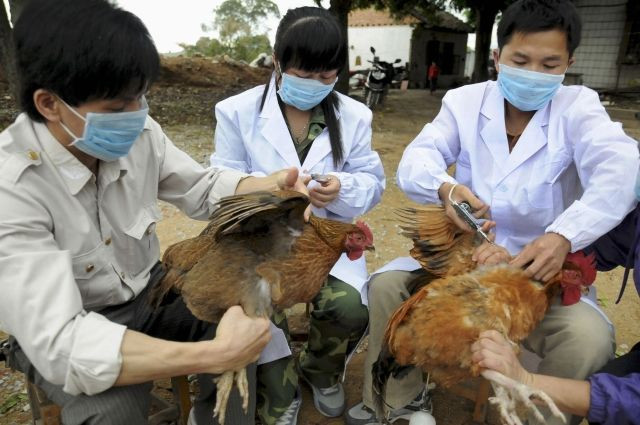China Kills 20,000 Birds as H7N9 Avian Flu Death Toll Climbs to 6

A sixth person died in China from the new H7N9 bird flu virus strain today, as the government gave the order to kill 20,000 birds from a poultry-trading area in Shanghai. The total number of infected people is now 16 nationwide, and there are no reported cases outside of China.
The sixth death was a 64-year-old man named Zhang, a peasant farmer from Huzhou City, reported Xinhua, the state-run run news network. He died within hours after doctors confirmed that he had the virus. None of the 55 people that state health authorities identified as having been in touch with Zhang have shown any bird flu symptoms.
Xinhua reported that three poultry markets have been temporarily closed to prevent the spread of the H7N9 bird flu virus, and that all live poultry from other parts of China are banned from entering Shanghai.
A total of 20,536 chickens, ducks, geese, and pigeons were killed in a live poultry-trading zone in Shanghai after the bird flu virus was detected there in pigeon samples earlier this week. Market vendors were reportedly compensated for their losses.
The Shanghai agricultural commission led a thorough disinfection of the market area, and six people who were in close contact with the poultry are currently under medical observation by the Shanghai Municipal Center of Disease Control and Prevention.
The World Health Organization is closely monitoring all the contacts of the 16 people who have been infected by the virus, which is not yet thought to be capable of reaching pandemic status.
There is still no confirmation that the H7N9 bird flu virus can spread from human-to-human contact - so far, all of the 16 reported cases seem to have handled contaminated poultry before becoming infected.
Earlier today, Xinhua reported the worrying news that one person who had close contact with a dead H7N9 patient in Shanghai was quarantined with flu symptoms, but the Taipei Times reports that the patient has since tested negative for that avian virus strain.
"We don't know yet where the humans got their virus from," Dr. Joseph Bresee, head of the epidemiology and prevention branch in the U.S. Centers for Disease Control and Prevention's (CDC) influenza division, told CNN, though the CDC is working with Chinese authorities to figure out the chain of transmission
"There are lots of things happening at CDC to prepare for this virus. State health departments are readying themselves just in case."
CDC director Thomas Frieden told the Los Angeles Times earlier today that CDC researchers are working on developing a vaccine for the H7N9 strain "out of an abundance of caution," though one won't be produced unless the bird flu strain is found to be contagious from person-to-person.
Published by Medicaldaily.com



























